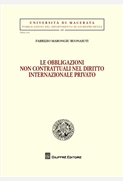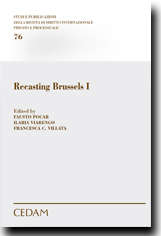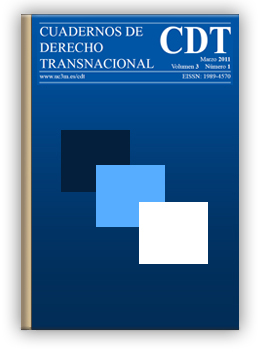From anti-suit injunctions to ‘quasi’ anti-suit injunctions and declaratory relief for breach of a choice of court agreement: a whiter shade of pale?
Nearly a year ago I reported on a Greek judgment refusing execution of two English orders issued on the basis of a High Court judgment which granted declaratory relief to the applicants. This came as a result of proceedings initiated in Greece, in breach of the settlement agreements and the exclusive jurisdiction clauses in favor of English courts. A recent judgment rendered by the same court confirmed the incidental recognition of the same High Court judgment, which resulted in the dismissal of the claim filed before Greek courts due to lack of jurisdiction.
Piraeus Court of Appeal Nr. 89/31.01.2020
THE FACTS
The facts of the case are clearly presented in the case Starlight Shipping Co v Allianz Marine & Aviation Versicherungs AG [2014] EWHC 3068 (Comm) (26 September 2014. The UK defendants invoked before the Piraeus first instance court the judgment aforementioned, and requested incidental recognition in Greece. The Piraeus court granted recognition, and dismissed the claim. The plaintiffs appealed, seeking reversal on two grounds: Lack of res iudicata and violation of Article 34 (1) Brussels I Regulation.
THE RULING
The Piraeus CoA founded its ruling on point 39 of the English judgment:
- So far as the Hellenic settlement agreement is concerned, clause 2 expressly provides that the payment of U.S.$4.8 million is “in full and final settlement of all and any claims they may have under the Policy in relation to the loss of [the vessel] against the Underwriters and/or against any of its servants and/or agents..” As with the CMI and LMI settlement agreements, that wording settles claims under the policy in relation to the loss of the vessel. Accordingly, by application of the reasoning of Longmore LJ in the Court of Appeal, as set out at [32] to [35] above, the claims against Hellenic in Greece are within the settlement and indemnity provisions in the Hellenic settlement agreement and in breach of the exclusive jurisdiction clause in the Hellenic settlement agreement and the arbitration clause in the underlying Policy…
Res iudicata and public policy
The Piraeus court had no difficult task in establishing the finality of the English judgment: It simply referred to the certificate issued by the English court.
The public policy defence was also considered as unfounded, by reference to Article 35 (2 and 3) Brussels I Regulation.
No anti-suit injunction order
It then stressed out that the foreign judgment solidifies the exclusive international jurisdiction of English courts, without ordering the claimants/appellants to refrain from filing an action or moving ahead with the proceedings before Greek courts, by imposing any measures for this purpose. Hence, the court continues, the foreign judgment in question fulfils the criteria under Article 32 Brussels I Regulation, and therefore it is not considered as an anti-suit injunction, because it does not hinder the Greek court to examine their jurisdiction. For the above reasons, the English judgment may be incidentally recognized, which means that the Greek court is bound by its findings on the international jurisdiction issue. Finally, it should be underlined that no reference to the Gothaer ruling of the CJEU was made by the Piraeus court.
Clarifications
Finally, the Piraeus court explained the reasons which led to a different outcome from that of the judgment issued by the same court a year ago. First of all, the court was not bound by the res iudicata of the 2019 judgment, because the defendants were not the same. Secondly, the 2019 judgment examined an application for the enforcement of the English orders, whereas in the present case the subject matter was the existence or non-existence of the choice of court clause.
For all the above reasons, the appeal was dismissed.
SHORT COMMENT
Following the case law of the CJEU on anti-suit injunctions, and the non-recognition of the orders, which were labelled by the 2019 judgment as ‘quasi’ anti-suit injunctions, the defendants used the seemingly sole remaining tool for avoiding a re-examination of international jurisdiction on the merits by the Greek courts; the outcome proves them right. The question however remains the same: Are declaratory orders stating that English courts have exclusive jurisdiction and that proceedings in other Member States are in breach of an English exclusive jurisdiction agreement in line with the mutual trust principle? In his thesis [pp. 146 et seq.], Mukarrum Ahmed argues that those orders are at odds with the above principle.
The Greek Supreme will have the final word.
Of course, a preliminary request remains a possibility.



